ROUNDUP: OSAKA ASIAN FILM FESTIVAL 2017

Kansai Strikes Back!
Osaka Asian Film Festival 2017 (第12回大阪アジアン映画祭)
Official website:
www.oaff.jp/2017/en/index.html
The Osaka Asian Film Festival (OAFF) has grown to be one of the most exciting film events for Japanese filmgoers and passionate cinephiles around the globe. Exclusively featuring Asian titles, the 12th edition of the festival presented internationally acclaimed pictures, such as Anocha Suwichakornpong’s By the Time It Gets Dark and Feng Xiaogang’s I Am Not Madame Bovary.
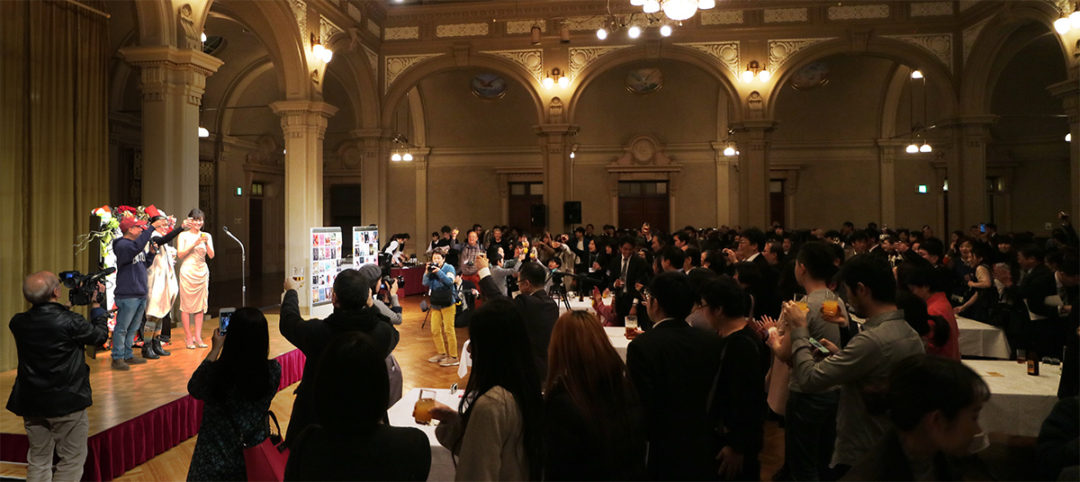 OAFF Welcome Party ©Koichi Mori
OAFF Welcome Party ©Koichi Mori
Nevertheless, OAFF has been keen on introducing domestic films more widely overseas as well, and this year they are more enthusiastic than before. In a festival interview, Programming Director Sozo Teruoka said, “[W]e also want the festival to be a gateway for Japanese films to go overseas. This year is the first time that we have funding from the JLOP fund of the Japan's Ministry of Economy, Trade and Industry (METI). They are only focused on exporting films, not the importing of foreign films. But if we invite press that watch Japanese films, they'll be satisfied.”
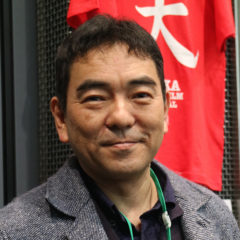 Sozo Teruoka, Programming Director,
Sozo Teruoka, Programming Director,
Osaka Asian Film Festival, ©Koichi Mori
OAFF has been a longtime collaborator with Cineastes Organization Osaka (CO2), which supports independent film production and fosters local actors. This year, three of the 12 slots in the Indie Forum section of new Japanese work were dedicated to the 13th CO2 Grant-recipient films, Kohei Taniguchi’s Dynamite Wolf, Asagi Kimura’s Hizume, and Akiko Igarashi’s Visualized Hearts. Among the granted projects, the most popular title was Dynamite Wolf, a heartwarming tale of an isolated kid who is drawn to wrestling and a masked wrestler named Dynamite Wolf. Though non-ingeniously conventional, it satisfactorily follows the narrative tradition of master/pupil relationship dramas. Alluringly entertaining are the appearances of colorful characters played by professional wrestlers from Dotonbori Pro Wrestling, an Osaka-based wrestling organization which fully cooperated in the filmmaking.
![DYNAMITE WOLF[おっさんのケーフェイ] Director: TANIGUCHI Kohei(谷口恒平)/2017/Japan/13th CO2 Grant-recipient Film [WP]](http://tokyofilmgoer.com/wp-content/uploads/2017/01/IF_CO2_Ossan_01-300x200.jpg) DYNAMITE WOLF [おっさんのケーフェイ]
DYNAMITE WOLF [おっさんのケーフェイ]
Director: TANIGUCHI Kohei (谷口恒平)
 DYNAMITE WOLF [おっさんのケーフェイ] Q&A
DYNAMITE WOLF [おっさんのケーフェイ] Q&A
From left: Super Delfin, Kohei Taniguchi, Akagi, Rina Yamashita, Kuuga ©Koichi Mori
Apart from CO2-produced works, the Indie Forum introduced a number of up-and-coming Japanese filmmakers. Koji Segawa’s Tamayura Mariko is the sort of film that you want to watch in the Midnight Madness section of the Toronto International Film Festival. Comically scripted but thematically serious, it depicts the gonzo life-crisis of a middle-age woman who is distressed by her husband’s affair and sexual harassment at her workplace. The film starts out as a hilarious feminist black comedy, but gets more morbid and fiendish as the mind of the protagonist increasingly goes pell-mell. In the end, however, Segawa unveils a kind of harmless humanism that differentiates him from the crazier-the-better filmmakers who worship Tarantino.
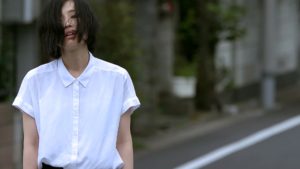 TAMAYURA MARIKO [たまゆらのマリ子]
TAMAYURA MARIKO [たまゆらのマリ子]
Director: Koji SEGAWA (瀬川浩志)
One title that will probably receive the strongest international attention is Ronan Girre’s I Want to Be Loved, the latest project produced by Wa Entertainment. Girre, who splits his time between Paris and Japan, also penned the script, which combines J-horror with the obsessive French love story of a dead high school girl who attacks anyone who might prevent her from being loved. The film offers a number of outlandish images, but unfortunately seems to be stuck in between two genre narratives, reaching an unsatisfactory climax that does not lead to a pat resolution.
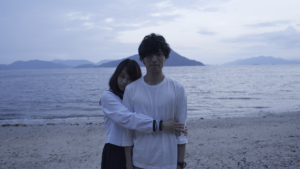 I WANT TO BE LOVED [海の底からモナムール/ Besoin d’ amour]
I WANT TO BE LOVED [海の底からモナムール/ Besoin d’ amour]
Director: Ronan GIRRE
Shingo Matsumura’s Love and Goodbye and Hawaii was named as the winner of the Japan Cuts Award, the Indie Forum section’s one prize. His second feature is a slow-paced, off-beat love comedy, reminiscent of Naoko Ogigami’s earlier works, about a twenty-something female office worker who still resides with an ex-boyfriend. The comfortable presence of Aya Ayano, the lead actress, makes the couple charming and lovable, contributing to soften the insufferable pain of the passage of time and reality, which encourages them to change. It is a film for everyone, but its conventionality and lack of surprises might not satisfy all audiences.
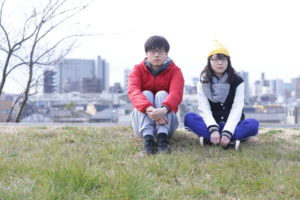 LOVE AND GOODBYE AND HAWAII [恋とさよならとハワイ]
LOVE AND GOODBYE AND HAWAII [恋とさよならとハワイ]
Director: MATSUMURA Shingo (まつむらしんご)
OAFF is fully supportive of offering a path for these promising filmmakers, and even urges them to come back. A good example is Daisuke Miyazaki, who participated in OAFF as part of the omnibus film Five to Nine last year, and returned this year in the Competition section with his latest, Yamato (California). Miyazaki sets his second feature in his own hometown, Yamato, which hosts a US air base, and the constant noise of military aircraft is utterly disturbing even just for the two hours of the film. Stimulated by an explosive performance by Hanae Kan, Yamato (California) examines the identity of an amateur rapper Sakura, a moody dropout who is as powerful and sensitive as Eminem in 8 Mile. Miyazaki, who adroitly handles both fierce handheld shots and Ozu-like stationary shots, boldly tackles the sensitive issue of US-Japan politics in a personalized manner that, despite its lackluster ending, will resonate with spectators and encourage cross-cultural understanding. Yet the depiction of a violent Korean group might offend some sensitive viewers and undermine the whole point of the film.
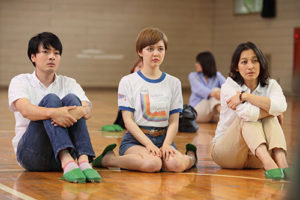 YAMATO (CALIFORNIA) [大和(カリフォルニア)]
YAMATO (CALIFORNIA) [大和(カリフォルニア)]
Director: MIYAZAKI Daisuke (宮崎大祐)
The festival welcomed its closure with Parks by Natsuki Seta, another filmmaker who was previously invited to OAFF with A Letter from Elsewhere in 2009. Although the film itself suffers from an illogical narrative and comic-like acting, Seta’s involvement with the commercial film, and its well-known actors, reconfirms OAFF’s function as the gateway to the industry. OAFF 2017 proved once again that a rich film culture and prominent filmmakers are readily found in the Kansai region.
 PARKS [PARKS パークス] Director: SETA Natsuki (瀬田なつき)
PARKS [PARKS パークス] Director: SETA Natsuki (瀬田なつき)
OAFF Award Winners
Grand Prix (Best Picture Award)
![Grand Prix (Best Picture Award) MAD WORLD [一念無明] Director: WONG Chun (黃進) 2016/Hong Kong/102min|Language: Cantonese|Subtitles: Japanese, English, Cantonese](http://tokyofilmgoer.com/wp-content/uploads/2017/03/CO09_MadWorld_ichinenmumyou_3s-300x126.jpg) MAD WORLD [一念無明] Hong Kong
MAD WORLD [一念無明] Hong Kong
Director: WONG Chun (黃進)
Most Promising Talent Award
 Fish LIEW 廖子妤, Actress
Fish LIEW 廖子妤, Actress
SISTERHOOD [骨妹], Macao, Hong Kong
Special Mention
 BY THE TIME IT GETS DARK Thailand, Netherland, France, Qatar
BY THE TIME IT GETS DARK Thailand, Netherland, France, Qatar
Director: Anocha SUWICHAKORNPONG
JAPAN CUTS Award
 LOVE AND GOODBYE AND HAWAII [恋とさよならとハワイ] Japan
LOVE AND GOODBYE AND HAWAII [恋とさよならとハワイ] Japan
Director: MATSUMURA Shingo (まつむらしんご)
ABC Award
 SOUL MATE [七月與安生] Hong Kong, China
SOUL MATE [七月與安生] Hong Kong, China
Director: Derek TSANG (曾國祥)
Yakushi Pearl Award
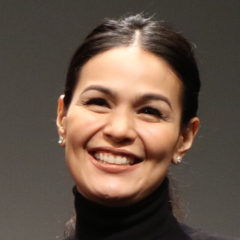 Iza CALZADO, Actress
Iza CALZADO, Actress
BLISS, Philippines ©Koichi Mori
Audience Award
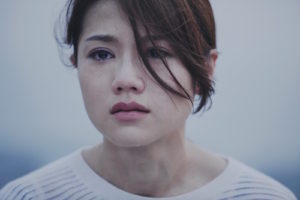 29+1 Hong Kong|Director: Kearen PANG (彭秀慧)
29+1 Hong Kong|Director: Kearen PANG (彭秀慧)
By Kenta Kato
Kenta Kato is a Tokyo-based writer, film critic and festival programmer, currently working on a Master’s degree in Film Studies at Waseda University.
